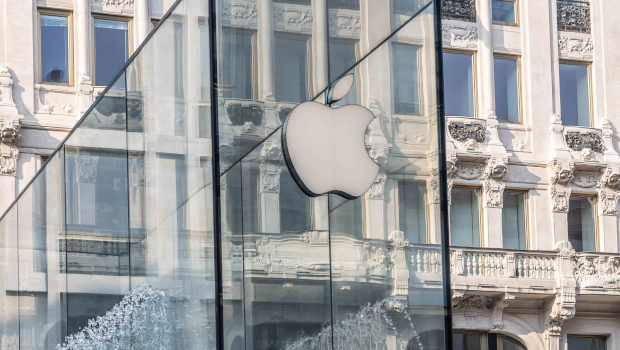
Are sluggish iPhone sales proof that Big Tech has plateaued?
Sales of iPhones are down over almost the entire world, according to Apple’s earnings report this week. Smartphones dropped by more than 10% in the first three months of this year, it said, while overall revenues declined by 4%.
Apple blamed the sluggish sales on Covid-related supply chain issues a year ago, but it also cannot have helped that recent updates to its flagship product, the iPhone, have been iterative rather than revolutionary. More broadly, the entire smartphone market has matured, with consumers seeing less reason for frequent upgrades.
Despite the bad news, Apple’s shares rallied, partly in response to promises of forthcoming developments in AI, but largely because the company announced a share buyback of $110 billion (€132 billion). What this means is that the company will buy this amount of shares on the open market and then destroy them, leaving fewer shares outstanding, something that raises the value of the remaining shares.
This is a fairly normal practice for a highly profitable corporation seeking to send profits to shareholders. After all, capital can be allocated internally, in the hope of expanding the business, or returned to shareholders one way or another.
What is interesting is that the last few months have seen some big changes in how Big Tech as a whole allocates capital.
Think of the shareholders
Google parent Alphabet last month announced that it would start to pay shareholders a quarterly dividend, while Meta Platforms, which owns Facebook and Instagram, did the same in February. Dividend payments are typically associated with what are euphemistically called ‘mature’ companies, as high growth businesses tend to reinvest their profits into expansion or research and development (R&D).
Of course, none of the tech giants have closed their R&D departments, nor are they seeking to manage decline. Indeed, Apple and Microsoft, both significantly older businesses than the likes of Google and Meta, have paid dividends for years.
But allocating capital to dividends at all does signal something: dividends, and to a lesser extent buybacks, are signs of businesses that expect continuity in the future, not explosive growth.
From the point of view of the share-issuing company, dividends attract a new class of investor who is interested as much, or more, in revenue than in seeing the share price grow (though the ideal is both, obviously). These investors, often investing for retirement, want to see consistent growth of the dividend over the years, so while the dividend paid will often be small at first, after a few decades it can be quite substantial.
If the dividend does grow and, at the same time, the share price continues to rise then the total gain will be even higher on a percentage basis. However, a company that expects to double in size and then double again, due to a massive addressable market of consumers, is highly unlikely to bother paying out a dividend as it will expect its share price to rocket and allow investors to profit by simply selling shares.
At the time of writing, Apple pays a 0.55% annual dividend, Microsoft pays 0.75%, Meta pays 0.45% and Google 0.47%. These rise and fall with the share price, as they are based on a dollar amount paid out, not a fixed percentage, but what they mean is investors get that percentage of today’s share price paid back to them in cash every year.
A miniscule amount, right? Well, yes, but time can take care of that.
IBM currently pays a 4.06% dividend, which makes sense as Big Blue has been around a lot longer than the others and, indeed, IBM is now a so-called ‘dividend aristocrat’, meaning that it has raised its dividend every year without fail for over a quarter of a century.IBM has had decent results recently but paying a hefty dividend is typically seen by markets as indicating that the company does not see any way to invest its profits in activity that would lead to growth and, with it, massive share price rises.
Once you step outside of the tech sector, dividend yields can rise substantially. US telco AT&T, for instance, pays investors some 6.60% annually. Tobacco firm Altria, the US arm of the old Philip Morris company, pays investors a staggering 8.91%. Now, flogging tobacco is not considered a growth area, for fairly obvious reasons, so investors, who want something for their money, are hoping that such a high dividend will in relatively short order pay for the shares they have stumped-up for.
Big Tech dividends are a long way from those paid by telcos and tobacco companies, but the fact that they are paying them at all tells us a lot about how they view the prospects for growth in the years to come.





Subscribers 0
Fans 0
Followers 0
Followers